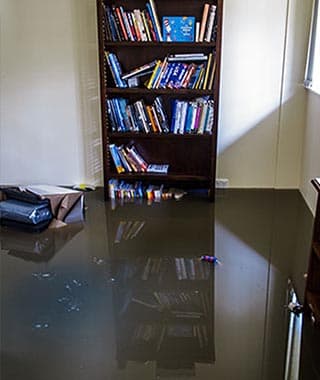For most people, buying a home of your own is an essential step towards creating that dream family life. However, along with getting that home comes the responsibility of maintaining it.
There are a lot of different elements that come into maintaining a home, but one that often gets missed is mold, at least, until it’s too late. Not only does letting mold get out of control lead to expensive remediation and repair, but it can also cause health issues. In some cases, children can feel these effects more than others.
Mold Symptoms In Kids
Mold exposure can be a serious health concern for children, as their developing bodies are particularly sensitive to the toxins released by mold spores. Many parents may not be aware that mold exposure can be linked to a number of health issues in kids.
Common symptoms to look out for include:
- Asthma
- Respiratory problems
- Skin irritation
- Watery eyes
- Coughing
- Sneezing
- Runny nose
- Fatigue
- Headaches
- General Irritability
If your child is exhibiting any of these symptoms, it is important to investigate the cause and take steps to prevent further exposure. It is essential that any existing mold is removed quickly and that the environment is kept clean and dry. If you have any concern about mold in your home, it is best to consult a professional to assess the situation and provide you with the best advice.
Mold And Child Health
Statistically speaking, roughly 10 percent of all children have some sort of sensitivity to mold. How exactly that sensitivity manifests can vary. In some cases, it’s similar to your typical allergies. When kids breathe in the mold spores, it causes the immune system to overreact, leading to symptoms like sneezing, irritation, and coughing.
However, there can be other concerns. For example, children who are already struggling with asthma can be particularly at risk when exposed to mold. As a result, not only should you try to minimize mold in your home, but also avoid areas likely to have mold outside, like vegetable gardens or freshly-mowed grass.
Toxic Mold
One of the biggest panics people have when thinking about mold and children is “toxic mold.” We should clear the air on this concept a little bit. Out of the over 100,000 types of mold out there, only around 50 qualify as toxic.
Technically, the molds themselves aren’t even toxic, but their spores give off something called mycotoxins. These can be a concern for children, though. Even adults exposed to some of these species of mold can develop respiratory infections, depression, and general lethargy.
Avoiding Mold Problems
As you can see, prolonged exposure to mold can cause medical issues for even the healthiest children, the last thing you want to see as a parent or property owner. The best thing you can do here is try to eliminate mold’s chances to grow. The main way to do this is through keeping a wary eye on sources of excess moisture. For example, bathrooms can maintain a lot of moisture through poor ventilation, leading to mold. Make sure that you inspect these areas daily or consider installing a fan to help keep things dry.
Equally important is tracking leaks. In areas like the basement or attic, which may not be visited often, it’s very easy for mold to grow quickly and lead to problems. After heavy storms or damage to the home, make sure that you have an inspection done. Even smaller leaks can lead to mold and water damage, and they’re only going to grow given time.
Eliminate Mold
Unfortunately, despite your best efforts, there’s no guarantee that you will eliminate mold entirely. For example, in some cases, like heavy water damage or a flood, you may not have enough time to react and get help before mold begins to grow. In these situations, it’s essential to section off the affected area and dispose of contaminated items to prevent any spread.
In other cases, mold may develop in an area that’s difficult for you to detect without specialized equipment. Mold can hide behind walls or hard to see places.
In these situations, it’s essential that you look into mold remediation as soon as possible. Getting help here can keep the mold from spreading and make your home safe again for the whole family.
If you’re looking for mold remediation in Miami and South Florida, one of your best options is working with Total Care Restoration.
We are IICRC-certified, have a 5-star rating on Yelp and an A+ rating with the BBB.










